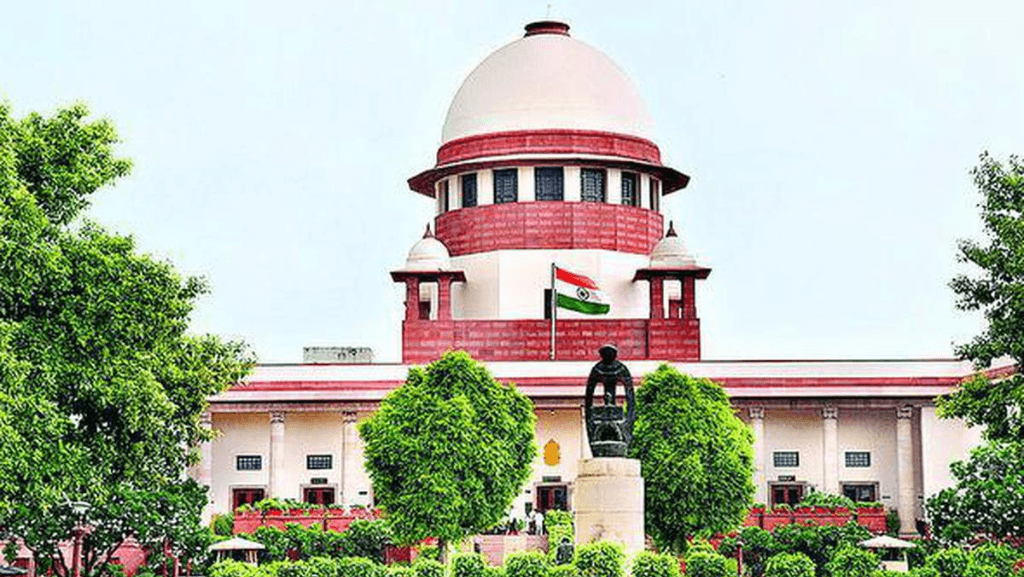
Supreme Court Reinstates Three-Year Practice Requirement for Judicial Service Eligibility
Supreme Court reintroduces experience prerequisite, aiming to elevate judicial competence and uphold the integrity of lower courts.
In a pivotal ruling on May 20, 2025, the Supreme Court of India mandated that candidates must possess a minimum of three years of legal practice to qualify for entry-level positions in the judicial service. This decision marks a significant shift from the 2002 policy that permitted fresh law graduates to directly enter the judiciary without prior courtroom experience.
Background and Rationale
The verdict was delivered by a bench comprising Chief Justice of India (CJI) BR Gavai, Justice AG Masih, and Justice K Vinod Chandran. The Court emphasised that firsthand experience in legal practice is indispensable for judicial officers, as it equips them with practical insights into the intricacies of litigation and the administration of justice.
The Court observed that the recruitment of fresh law graduates without any practical experience had led to several challenges. Feedback from various High Courts indicated that such appointees often lacked the necessary understanding of courtroom procedures and the nuances of legal practice, which are crucial for effective judicial functioning.
Implementation Details
Under the new directive:
-
Eligibility Criterion: Candidates aspiring to appear for the Civil Judge (Junior Division) examination must have completed a minimum of three years of legal practice.
-
Certification Requirement: Applicants are required to furnish a certificate attesting to their legal practice. For those practising in trial courts, this certificate must be issued by the Principal District Judge. Candidates practising in High Courts must obtain endorsements from an advocate with at least ten years of standing at the Bar.
-
Recognition of Clerkship: Experience gained as a law clerk to judges will also be considered valid legal practice for eligibility.
-
Training Mandate: All new judicial appointees are required to undergo one year of mandatory training before presiding over court proceedings.
-
Prospective Application: The ruling will apply to future recruitment processes. Ongoing or already-notified recruitment drives will not be affected by this change.
Historical Context
The requirement for prior legal practice was initially established in the 1993 All India Judges Association v. Union of India case. However, in 2002, the Supreme Court removed this prerequisite based on recommendations from the Shetty Commission, which argued that the condition deterred bright young graduates from pursuing a judicial career. The Commission suggested that structured judicial training could compensate for the lack of practical experience.
Over time, concerns emerged regarding the efficacy of appointing judges without courtroom experience. Various High Courts reported that such appointments often resulted in inefficiencies and a lack of practical understanding, prompting a re-evaluation of the eligibility criteria.
Implications for Aspiring Judges
This ruling necessitates a strategic shift for law graduates aiming for a judicial career. Instead of directly entering the judiciary post-graduation, they must now engage in active legal practice for at least three years. This period is expected to provide them with the necessary exposure to legal procedures, client interactions, and courtroom dynamics, thereby enhancing their readiness for judicial responsibilities.
Moreover, the inclusion of clerkship experience as valid practice offers an alternative pathway for candidates to gain relevant exposure, especially for those who may not engage in traditional litigation roles.
Broader Impact on the Judicial System
The reinstatement of the practice requirement is anticipated to elevate the quality of judicial appointments, ensuring that judges possess both theoretical knowledge and practical experience. This move aligns with the broader objective of enhancing the efficiency and credibility of the judiciary.
Legal Expert Insights
Providing a global legal perspective, Sunil Ambalavelil, the Chairman of Kaden Boriss and an eminent legal expert based in Dubai, offered the following commentary:
“The reinstatement of the practice requirement by the Supreme Court is both timely and necessary. Across jurisdictions, including in many developed legal systems, judicial service eligibility is closely tied to practical experience.
This move brings India’s judicial appointment standards closer to international best practices and will help reinforce public confidence in the lower judiciary.”
Summary
The Supreme Court's decision to mandate a minimum of three years of legal practice for judicial service eligibility marks a significant development in the Indian legal landscape. By emphasising practical experience, the judiciary seeks to ensure that its officers are well-equipped to handle the complexities of legal adjudication, thereby strengthening the overall justice delivery system.
For any enquiries or information, contact info@thelawreporters.com or call us on +971 52 644 3004. Follow The Law Reporters on WhatsApp Channels.